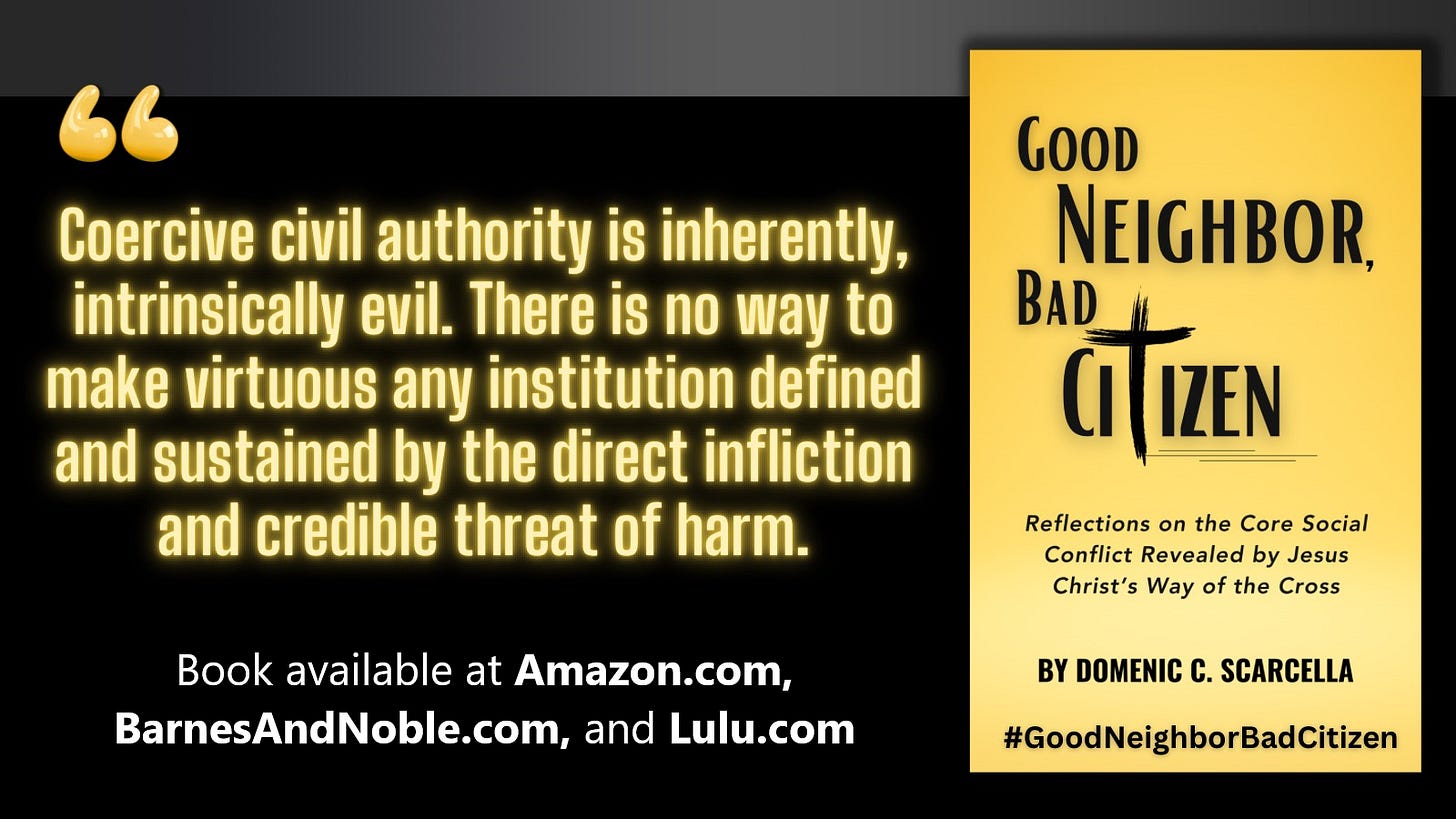Julian Assange & Jesus (PART TWO): Cypherpunks & Catacombs
As Technology Changes, Undermining the State Remains As Vital Today As It Was for the Early Church
Coercive civil authority is inherently, intrinsically evil. I repeat that universal truth so often, I made myself a shorthand to use for tagging things: CCAIIIE. It’s a fundamental insight implicitly understood on every page of my book, though I explicitly write it only once:
Coercive civil authority is inherently, intrinsically evil. There is no way to make virtuous any institution defined and sustained by the direct infliction and credible threat of harm.
Yes, CCAIIIE. And I support every effort to undermine it.
In Part One of this two-week miniseries, we looked at how Julian Assange and Jesus were each persecuted for nonviolent “crimes” of shaming the State. This week, in Part Two, we’ll consider the acts of courage that epitomize the “Good Neighbor, Bad Citizen” ethos of outcasts, outliers, and outlaws who comprised Assange’s and Jesus’ communities.
The figurative, digital underground
A friend from one of my many previous careers is an engineer and a broadly well-read, curious person. He’s an open-minded, practical thinker who has tracked blockchain/cryptocurrency technology since long before it crept into mainstream pop culture.
And he reminded me recently of the early 2010s, when the firstfruits of this subversive monetary venture, Bitcoin, met Wikileaks. From a 2019 article in Forbes:
[Wikileaks] would establish a payments channel in Bitcoin on June 14, 2011. …
Bitcoin and WikiLeaks became somewhat intertwined, early fledgling movements that both had their roots in the cypherpunk community. …
WikiLeaks saved an emerging Bitcoin community from excessive political pressure and heat its creator did not think it would survive. In turn, Bitcoin saved WikiLeaks from plunging into financial dissolution thanks to a US-based financial and services blockade that looked to tear it down[.]
It’s the underground, digitally. It’s “white hat” black markets in both electronic money and electronic media. And it’s a connection that remains active in 2024.
While Bitcoin and other cryptocurrencies still have much work to do in order to become everyday money, Bitcoin especially seems to be a financial asset for many people worldwide facing persecution from governments and government-connected banking entities.
Thank the cypherpunks for their vision, and thank Assange and WikiLeaks for giving that vision the practical urgency it needed.
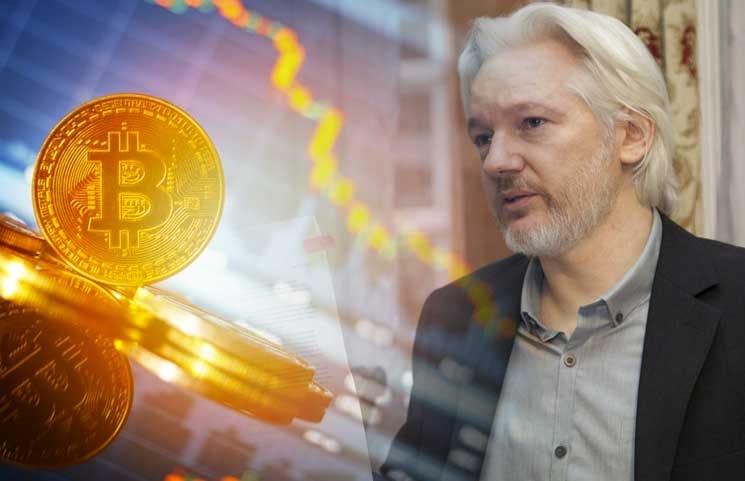
The literal, physical underground
The Early Church knew a thing or two about being subversives. The decentralized, meek-but-not-weak first generation of Christians were cast out of polite society. As told in the Bible’s Acts of the Apostles, the Jerusalem community faced:
the capture (6:11-12) and murder (7:54-60) of their first deacon
the scattering of their community (8:1-3)
the murder of one Apostle, James, and the imprisonment of another Apostle, Peter (12:1-11); fortunately, Peter breaks out of prison, which means the first pope is both a felon and a fugitive years before being killed for his faith (how’s THAT for badass?!)
Later, the Acts of the Apostles records Paul and companions/allies facing expulsion, assassination attempts, fines, and imprisonment in Antioch, Iconium, Lystra, Philippi, Thessalonica, Beroea, Corinth, Ephesus … you get the idea.
By the middle of the first century A.D., Christian communities appear in Rome, where they face imperial edicts and survive by meeting in small groups. In this Belly of the Beast, perhaps the best-known feats of Christian undermining occur, mostly in use during the period roughly 150 to 250 years later: the catacombs.
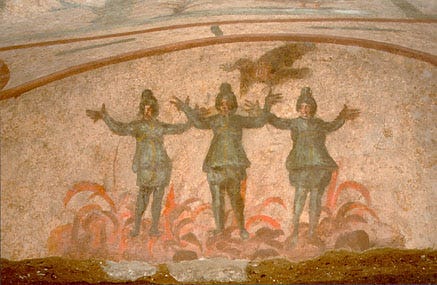
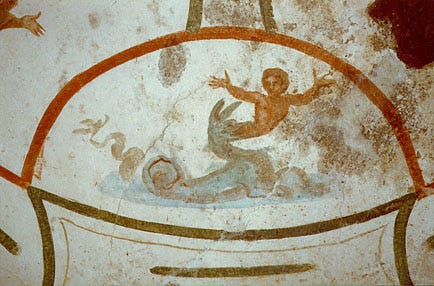
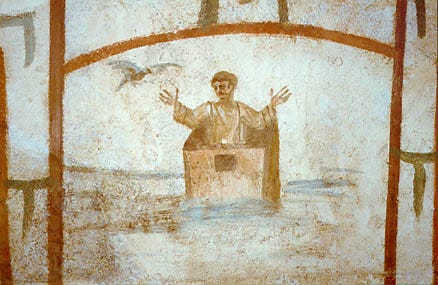
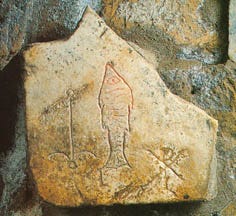
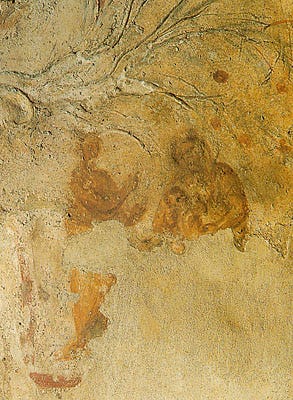
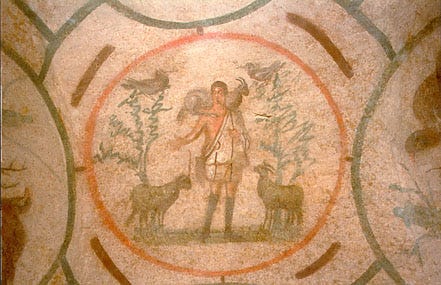
Christians literally go underground, digging in the “tufacious types of soil … in central, southern and insular Italy.” Here, persecuted, pre-Constantine Christians are buried in labyrinths that also serve as worship sites filled with religious artworks that are still around (just like the Church)!
Survival through sacrifice
There is a cost to being an outcast, outlier, and outlaw — a good neighbor, but a bad citizen — not paid by those in the milquetoast mainstream. As I write in my book:
What will be, may bring hardship and sacrifice, requiring faith — and some good neighborliness — to withstand. But for those who persevere, it is worth all the effort, even if not immediately evident.
It takes courage — then and now — to realize it.
Jesus and the Early Church demonstrate this seemingly counterintuitive truth. May Assange and WikiLeaks remain courageous, too.
What do you think of the struggles of the Early Church? The struggles of the early innovators of blockchain and WikiLeaks?
Had you heard of the cypherpunks? What do you think of them now? Would you like to learn more about them?
Anything else stand out to you about today’s concluding article in this two-part miniseries?
Share your thoughts in the Comments …




